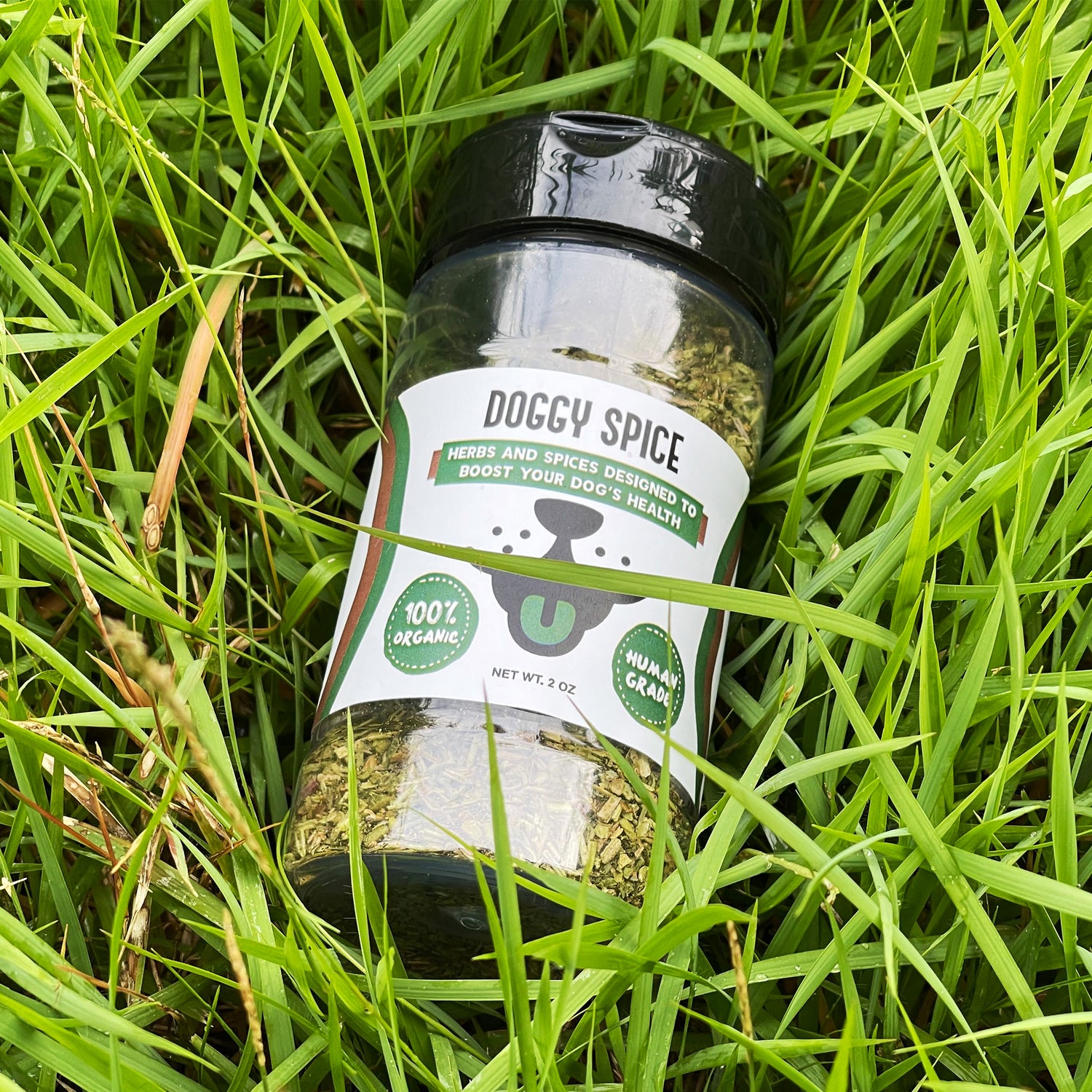
How to Socialize Your Puppy: Tips for Success
Share
Introduction
Socializing a puppy is essential for raising a well-behaved and confident dog. Exposing them to various people, animals, and environments early on helps build a strong foundation for positive behaviors and reduces anxiety or aggression later in life. 🐶
In this guide, we’ll cover effective tips for puppy socialization and provide expert insights to help you raise a well-adjusted pup. 🐾
Why Puppy Socialization Matters
Early socialization helps puppies:
- Develop good manners around other dogs and people
- Avoid fear and aggression issues
- Adapt to different environments with confidence
According to the American Veterinary Society of Animal Behavior, "Lack of socialization is one of the most significant risk factors for behavior problems in dogs." A well-socialized puppy is more likely to grow into a happy, adaptable adult dog. 🐕
The Prime Socialization Window 🕒
Puppies have a critical socialization period between 3 to 16 weeks of age. During this time, puppies are more receptive to new experiences and can develop positive associations with people, sounds, sights, and other animals.
➡️ Note: Consult your vet about safely introducing your puppy to new places and dogs, especially before they complete their vaccinations.
Steps to Successfully Socialize Your Puppy
-
Start With Family and Close Friends 🏡
Introduce your puppy to family members and trusted friends:
- Encourage calm, gentle petting and play
- Use treats to reward friendly behavior
- Keep sessions short and positive to avoid overwhelming your puppy
-
Expose to Various Environments 🌍
Help your puppy get comfortable in different places:
- Start with the backyard or a friend’s yard before progressing to parks
- Bring treats to create positive associations with new spaces
- Gradually increase exposure to different environments like parks, streets, and pet-friendly stores
-
Introduce Other Dogs 🐕
Meeting other dogs is crucial but must be done carefully:
- Choose calm, vaccinated dogs who are good with puppies
- Use leashes for safety during initial introductions
- Reward calm and friendly behavior with treats
-
Play Exposure Sounds 🔊
Acclimating your puppy to common household and outdoor sounds can prevent fear reactions:
- Use recorded sounds of cars, fireworks, or vacuum cleaners at a low volume
- Gradually increase the volume over time while rewarding calm behavior
- Offer praise and treats when they remain relaxed
-
Positive Reinforcement Training 🎓
Using treats and praise reinforces good behavior:
- Reward calm, confident behavior around new experiences
- Avoid scolding or punishment if your puppy feels scared—this can worsen anxiety
- Stay calm and patient to help your puppy feel secure
Socialization Checklist for Your Puppy
|
Experience |
Suggested Frequency |
Tips |
|
New People |
2–3 times per week |
Vary ages, genders, and appearances |
|
Sounds (vacuum, cars) |
Daily |
Start with low volume, increase gradually |
|
Environments (parks, stores) |
1–2 times per week |
Keep outings short at first |
|
Other Dogs |
Weekly |
Start with one calm dog, increase gradually |
|
Handling (paws, ears) |
Daily |
Use treats for positive association |
Common Socialization Mistakes to Avoid
The Role of Body Language in Socialization 🐾
Understanding your puppy’s body language is key to ensuring successful socialization. Puppies express themselves in various ways, and recognizing their comfort or discomfort can guide how you approach new situations.
Signs of a Happy, Comfortable Puppy:
- Relaxed body posture and loose tail
- Ears in a natural, non-rigid position
- Approaching people or dogs with curiosity
Signs of a Stressed or Anxious Puppy:
- Tucked tail or cowering posture
- Yawning or lip-licking in a tense way
- Trying to retreat or hide behind you
If your puppy shows signs of anxiety, step back and give them a break. Gradual exposure over time will build their confidence.
Socialization Games to Build Confidence 🎉
Incorporate interactive games that help your puppy feel secure while also exposing them to new experiences. Here are some games to try:
These games add a playful aspect to socialization and help your puppy associate new experiences with fun and rewards.
Virtual Socialization: What to Do When You Can't Go Out 📱
In situations where in-person socialization is challenging, such as during bad weather or for health reasons, there are still ways to expose your puppy to new stimuli from home:
➡️ Play Sounds and Videos: Use videos with sounds of dogs barking, people talking, or city noises. Start with a low volume and gradually increase it as your puppy grows comfortable.
➡️ Guest Masks and Outfits: Encourage family members to wear hats, sunglasses, or masks around the house. This helps puppies learn that people can look different and teaches them to feel safe around a range of appearances.
➡️ FaceTime or Zoom Calls: If you have friends with pets or children, virtual introductions can help your puppy get used to seeing and hearing other animals or people in a safe, controlled way.
What to Do if Your Puppy is Overwhelmed 😥
Sometimes, puppies may feel overwhelmed during socialization, and it's crucial to handle this gently. Signs of overwhelm include excessive panting, avoidance, or becoming unresponsive. Here’s how to handle these situations:
Over time, gradual exposure and reassurance will help your puppy build resilience without forcing interactions they aren’t ready for.
How to Socialize an Older Puppy or Dog
If your dog missed socialization during the prime window, don’t worry; it’s still possible to help them adapt to new experiences. Here are some tips for socializing an older puppy or adult dog:
- Start Slow: Older dogs may have stronger initial reactions to new situations, so start with low-intensity interactions and slowly increase exposure.
- Reward Calm Behavior: Older dogs can learn through positive reinforcement. Reward them with treats and praise whenever they remain calm or display positive behavior around new people or environments.
- Use Professional Help if Needed: If your dog shows signs of extreme fear or aggression, a professional trainer or behaviorist can guide you through safe and effective socialization techniques.
Creating a Socialization Plan 📅
Creating a socialization plan can ensure you cover a range of situations and environments. Here’s a sample plan for a puppy:
❗️Regular Exposure: Maintain ongoing socialization efforts even after the prime window, especially to reinforce positive behaviors.
This plan helps ensure your puppy gradually gains confidence and becomes well-adjusted across various situations.
Using Dog-Friendly Herbs and Spices for Calming Effects 🌱
Some dog-safe herbs and spices may help soothe puppies who are naturally more anxious. Always consult your vet, but here are a few that are generally safe:
These natural options can support your puppy’s overall well-being and reduce stress, particularly in high-stress situations.
Wrap-Up: Building Confidence Through Positive Experiences 🌟
Socializing a puppy is about creating positive associations that will last a lifetime. With patience, careful planning, and lots of love, you can help your puppy become a confident, happy dog ready for all the adventures ahead.
Puppy Socialization Frequently Asked Questions (FAQ) 🧐
When should I start socializing my puppy?
Start as early as possible, ideally between 3 to 16 weeks, but consult your vet regarding safe interactions.
How often should I expose my puppy to new experiences?
Aim for short sessions every day or every few days, depending on your puppy’s comfort level.
Can my puppy be socialized after the prime window?
Yes, but it may take more time and patience as they grow. Adult dogs can still be socialized with gradual exposure.
What if my puppy is scared of new people or dogs?
Take it slow, allow distance, and use treats to create positive associations. Avoid forcing interactions.
Is socialization only about meeting other dogs?
No, it includes exposure to people, sounds, environments, and handling to build overall confidence.
Top Herbs and Spices to Keep Your Dog Healthy All Year 🌿
- Cleavers (Galium Aparine) - Supports lymphatic health
- Rosemary- Antioxidant-rich
- Dandelion Greens - Provides vitamins A, C, and K
- Basil - Calming properties
- Peppermint - Aids digestion
- Celery Seeds - Anti-inflammatory benefits
- Dill - Rich in antioxidants
- Oregano - Immune-supporting
- Parsley - Supports fresh breath
- Thyme - Immune booster
- Ginger - Soothes stomachs
- Tumeric - Anti-inflammatory properties
These herbs and spices can easily be incorporated into your dog’s meals with Doggy Spice to promote overall well-being. 🌱
Safety Tips for Socializing Your Puppy ⚠️
➡️ Use Leashes and Harnesses: Control interactions and prevent overstimulation.
➡️ Take Breaks: Puppies can get overwhelmed. Keep sessions short and monitor their stress level.
➡️ Reward with Treats: Reinforce positive behavior with treats or a favorite toy.
Conclusion
Socializing your puppy sets the foundation for a happy, confident, and well-behaved adult dog. Gradual exposure to people, environments, sounds, and other dogs, paired with positive reinforcement, can help create a strong bond and positive experiences for your puppy.
References
1. American Veterinary Society of Animal Behavior. (n.d.). Position Statement on Puppy Socialization. Retrieved from https://avsab.org/socialization.
2. American Kennel Club (AKC). (n.d.). Puppy Socialization: Why, When, and How to Do It Right. Retrieved from https://www.akc.org/puppy-socialization.
3. Veterinary Partner. (n.d.). Puppy Socialization: Tips and Timing. Retrieved from https://www.veterinarypartner.com/puppy-socialization.

